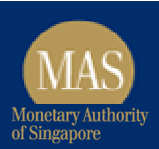Compliance
Singapore Trumpets AML Progress, Mulls Crypto Regime

The Singapore financial regulator recounts successes in fighting money laundering and flagged where next moves are coming from.
Singapore’s financial regulator has lauded financial institutions
in the Asian city-state for helping to fight money laundering and
warned that crypto-currencies and other new channels present new
threats.
“Going forward, combatting proliferation financing will remain a
priority risk area for Singapore. Sanctions evasion methods
continue to rise in sophistication and complexity, and FIs must
evolve their detection capabilities in tandem. We have observed
during our inspections a number of successes in banks detecting
and deterring such illicit behaviour,” Ho Hern Shin, assistant
managing director (banking and insurance), Monetary
Authority of Singapore, told a conference yesterday.
In one case, Ho Hern Shin referred to ship-to-ship transfers,
which can be entirely legitimate but also used to conceal
transportation of sanctioned goods. She said that a bank
succeeded in using “non-traditional data” to spot illicit deals.
In this case, the bank, having financed an oil shipment involving
a port that posed higher risks, conducted checks with the
International Maritime Bureau. The checks revealed that the
vessel veered close to the territorial waters of a sanctioned
country, and subsequently, IMB could not verify the discharge of
cargo at the port that was listed on the trade documents
provided. From these red flags, the bank filed an STR and
terminated the transaction.
Cryptos
Turning to the crypto-currency issue, Ho Hern Shin said the
recently enacted Payment Services Act will introduce a regulatory
framework for digital payment token services.
“Such services, while still nascent in Singapore, can present
significant ML/TF risks due to the anonymous and borderless
nature of the transactions they enable,” she said.
Setting up AML and other requirements will create more legal and
regulatory certainty for this fast-growing area, she said, and
foster legitimate innovation. She went on to say that the
regulator said it is also carrying out thematic checks on firms
to keep track of abuses of “shell corporations” and other
structures set up to launder money.
“Shell companies in particular have recently come under increased
global scrutiny, as they have featured in several high-profile
cases,” she said.
Ho Hern Shin gave some real-life examples of where these tests
had brought problems to light.
“One bank noted that a customer had no clear economic purpose for
maintaining a bank account in Singapore. Further due diligence by
the bank revealed that the director of the customer was connected
to several other corporate accounts, which similarly belonged to
foreign-owned companies without an operating presence here,” she
said. “Further, there were suspicious transactions such as
flow-through transactions, as well as frequent wire transfers to
companies in high-risk jurisdictions, which were not in line with
the bank’s understanding of these customers. These companies also
had superficial corporate websites that seemed inconsistent with
the scale of business implied by their transactions. Because the
bank was not able to obtain a satisfactory explanation about
these transactions, it filed STRs [suspicious transaction
reports] based on the numerous red flags observed and
subsequently exited these relationships,” she said.
“In another example, a bank’s rigour in checking a corporate
customer’s sources of funds uncovered that the company had been
funded by a problematic company set up by this company’s previous
director. There was also adverse news that this previous director
was involved in setting up multiple shell companies to evade
sanctions. The bank was concerned that the directorship had been
changed to mask the previous director’s continued association
with this company, as well as several other companies. With
further indication that this company could also be a shell
company, an STR was filed, and the relationship exited,” Ho Hern
Shin said.
MAS has been at the centre of one of the largest illicit money sagas of recent times. In May 2016 it removed bank licences from Switzerland's BSI and Falcon Private Bank because of these firms' serious failings in handling transactions linked to scandal-hit 1MDB, the Malaysian state-run fund.
